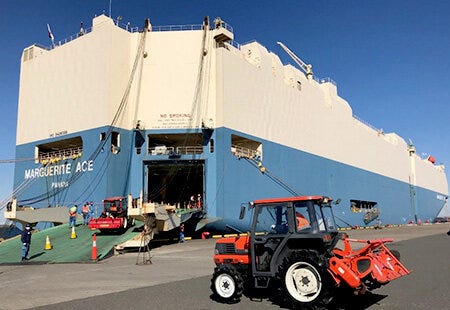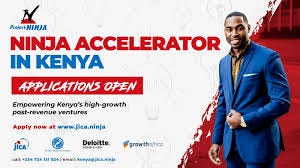Japan investments into Africa - 2022 Trends, Issues & Opportunities
PM Kishida vows $30 billion in 3 years, Who are the players, New faces and focus sectors, Cultural hurdles and tips, Personal Update
As TICAD 8 in Tunis closed in late July, with 92 MoUs announced from 34 corporates/organizations, now focus can finally focus on whats more important: Execution. PM Kishida also announced $30 billion over the next 3 years to Africa, but with very little details. These include $4 billion for green growth and decarbonization and a $5 billion loan to the African Development Bank to support fiscal stability, with a special $1 billion loan for debt management, but there is still 2/3 of total that is left unspecified. Full list of MoUs are here.
TICAD occurs every 3 years (used to be 5), so if nothing changes the next one will be in 2025. Until then, its important to track the commitments/partnerships/investments, and to be able to reflect upon it at TICAD 9 to avoid any empty promises. I understand that good portion of the $30B will be made up of grants, debt, ODA from public sector, but roles and activities of the private sector cannot be ignored when discussing startups and innovation.
Key players & New faces (VC, CVC, Corporates)
Speaking to numerous Japanese Corporates, DFIs, and VCs, 2022 in my view will be looked back as a year where many initiatives are happening under the surface, and 2023 to be the year where actual tangible developments will materialize. As known globally, Japanese corporates (and more so public sector) takes conservative approach for any new initiatives, especially when is comes to investing unknown markets. However as African ecosystem has drastically developed past 2-3 years, I do believe there has been enough evidence to digest and formulate a strategy. Also worth noting that interestingly, when one firm takes action, others tend to follow.
Venture Capital - The usual suspects include Kepple, who is raising a $100M fund with Verod, christened Verod-Kepple Africa Ventures (VKAV). Also interestingly, AAIC has announced the launch of 2nd fund, “Africa Innovation & Healthcare Fund VCC”, back in April, with LP backing from large Japanese Healthcare firms including Asahi Intecc, Eisai, and Ohara Pharma. Softbank, Samurai, SBI, Uncovered Fund, and Global Brain would be others already active on the ground (though obviously each has very different mandates).
Interestingly, there has been pick-up in inquiries from other VCs who is scouting for opportunities on the continent. Within what is recently publicly announced, Digital Garage Ventures and Sozo Ventures’ investment to Yellow Card’s $40M Series B is worth highlighting. Note that Digital Garage also invested into Wasoko, making this its 2nd investment. Sozo Ventures is one of the largest Japanese VCs based in Silicon Valley, with very solid track record (Zoom, Twitter, Coinbase, Square, etc) and LP base.
I do anticipate fresh Japanese VCs to continue join the bandwagon, which is overall net positive for Africa-Japan ecosystems given that LPs to these VCs are mostly large/publicly traded corporates, who will have the chance to access portfolio companies for investments and/or acquisitions.
Corporate VCs - Most famous obviously is Mobility 54, CVC of Toyota Tsusho, who has also backed VCs such as KVAV and Samurai. Up until this August, Mobility 54 has invested approximately $28M into 14 startups. There hasn’t been another CVC dedicated specifically to Africa (yet), but worth noting that MUFG Innovation Partners (CVC of Mitsubishi UFJ Financial Group) made their 1st startup investment into Moove this March. Also there has been initial diligence from CVCs with focus across sectors: Ag-tech, Ed-tech, Mobility, TMT/Content, HR-tech, to name some. I do think that it’s possible that the Toyota Tsusho/Mobility 54 model may be replicated by other corporates due to its success in the African ecosystem.
Sidenote - Past decade has been surge in CVCs in Japan, with number of firms launching a CVC increasing 10x from 2009 to 2017 (below left chart). However, the due to issues like “lack of expertise in the team” and “forced to change/rotate to a different department”, the results for many CVCs have been sour (below right shows satisfaction over time).
Corporates - This cohort tends to be the most complicated, especially due to the vast size of the organization and different business lines. However, they do have resources, networks, capital, and patience, so it’s important to understand ways to communicate with them. From my experiences, investments and M&A decisions are still made in HQ (Japan), whereas business partnerships and alliances are done in regional offices (Africa). Also, when it comes to large trading houses (Mitsubishi, Marubeni, Mitsui, Sumitomo, Sojitz, etc), different departments tend to not communicate with each other frequently, so it’s important to map out organization structure and prioritize communication channels.
New faces - Kenya has been popular destination for new office openings (versus South Africa traditionally). Sojitz, one of the trading firms, opened their office in Nairobi in 2021. MOL, one of the largest shipping and logistic firms, established a new entity “KiliMOL” in Kenya to deliver secondary Agriculture Machinery from Japan to small-scale farmers. Hoshizaki, largest commercial refrigerator and cooling system maker, also opened it’s branch in Nairobi in 2021. Lastly, Eisai, a pharma company with global presence in Alzheimer drugs, announced entry into Kenya and South Africa market.
Above are the ones publicly announced, but I am quite encouraged with other firms where the HQ management team will spend a week in Africa to meet with startups and founders to understand the business model and conduct due diligence.
Did you know there are 3 Japanese DFIs?
DFIs - Japan actually has 3 DFIs (yes, its not only JICA!), however each has their own mandates. Until now, JICA has been on the forefront for anything regarding Africa, but due to increasing appetite from private sector, it’s a good timing to understand what the mandates for DBJ and JBIC are.
JICA (Japan International Cooperation Agency) - Top focus is economic and social development of emerging markets. Main instruments has historically been ODA, grants, and project financing through debt and loans. However recently, they have been shifting to more startup ecosystem building (NINJA Project) and direct investments (Investment into Sanergy in Kenya).
JBIC (Japan Bank of International Cooperation) - Top focus is strengthening Japanese commercial sector’s overseas expansion. JBIC has done LP investments to funds, has provided project financing through debt for Japanese corporates overseas. For example, JBIC has launched a VC fund targeting Nordic and Baltic Region, and VC fund targeting Russia, both where JBIC forms a co-GP with a local fund . At the last TICAD, JBIC has announced it’s approach to Africa. As more Japanese commercial sector express interest to invest and expand into Africa, JBIC is worth looking out for.
DBJ (Development Bank of Japan) - Top focus is to strengthening Japan domestic economy (ie; Tourism, Inbound, SMEs, etc). However, DBJ is increasingly shifting its focus to overseas, given that many Japanese SMEs and startups are starting to look at overseas market. For example, in 2021, DBJ has invested into Vertex, a Singapore sovereign fund.
In sum, it is still very early innings for Japanese DFIs in terms of connection to African VC/PE ecosystem. JICA definitely has a lead with their historical presence on the continent and ongoing NINJA Project initiative, but there is definitely room for interesting development in coming years. Given that European and Global DFIs (IFC, AfDB, BII, DEG, FMO, etc) have played a significant role in developing the startup ecosystem in Africa, it would be great to see Japanese DFIs collaborating on programs and investments.
Issues & Opportunities
Issues: Communication inefficiencies - As briefly touched before, this tends to be an unfortunate deal-breaker especially for early stage startups. Not only individual language capability, the corporate culture of “HR rotation” forces employees to change departments every 3-5 years. Though it will not be an over-night change, many Japanese corporates have learned the hard way in Silicon Valley that this structure does not work in VC/Startup playing field. For startups, don’t be hesitant to ask which department they represent, what the purpose of the meeting it, whether attendee is regional/HQ/CVC, etc. It’s a known bottleneck that is gradually being addressed within corporates.
Opportunities: Manufacturing, Hardware, Deeptech, is Japan - While Silicon Valley and global VCs has been pouring into SaaS, web3, crypto recently, many of infrastructure and deep-tech oriented startups has been deprived of spotlight. But the tide is shifting with global inflation and re-appreciation for infrastructure and local supply-chain. Japan is definitely a very much hardware technology economy, from autos to all the way down to semiconductors and deep-tech pharma. When people think corporate Japan, it tends to be the most well known brands (Softbank, Mitsubishi, Sony, etc), but in reality, the most competitive Japanese companies are deep-tech firms including Murata, TDK, SUMCO, Tokyo Electron, Fanuc, Sysmex, and more. This hardware element I believe is the strongest synergy with African startups who require infrastructure and hardware.
Conclusion
Not just in Africa, but when speaking to people overseas, there are very mixed experiences and feedbacks working with Japanese corporates. Larger corporates and public sector is okay, but when it comes to fast-paced startups/VC realm, I do understand the frustration, and this is something I deeply feel passionate about alleviating.
I’ve touched on 2022 trends from Japan to Africa, my personal views on interesting developments, and hopefulness into 2023 and beyond. I hope this Japan-wrap can open up dialogues and help any African founders and VCs who has interest to explore collaborations with Japanese counterparts. Happy to connect with founders or VCs who may be facing relevant issues.
Personal Update
Oh, and I will be in Nairobi, Kenya from early November for several months to re-unit with founders and VCs on the ground. Looking forward on seeing you all!
Riki







Very resourceful info, thanks Riki
I love this. Thank you for sharing Riki. Would love a conversation about this with you whenever is convenient.